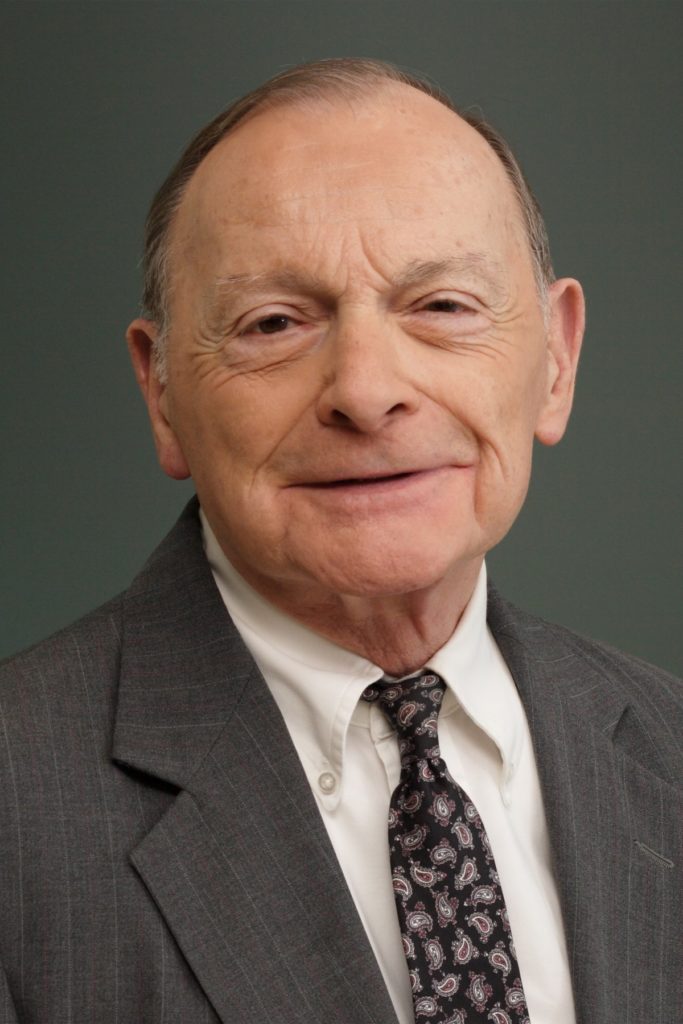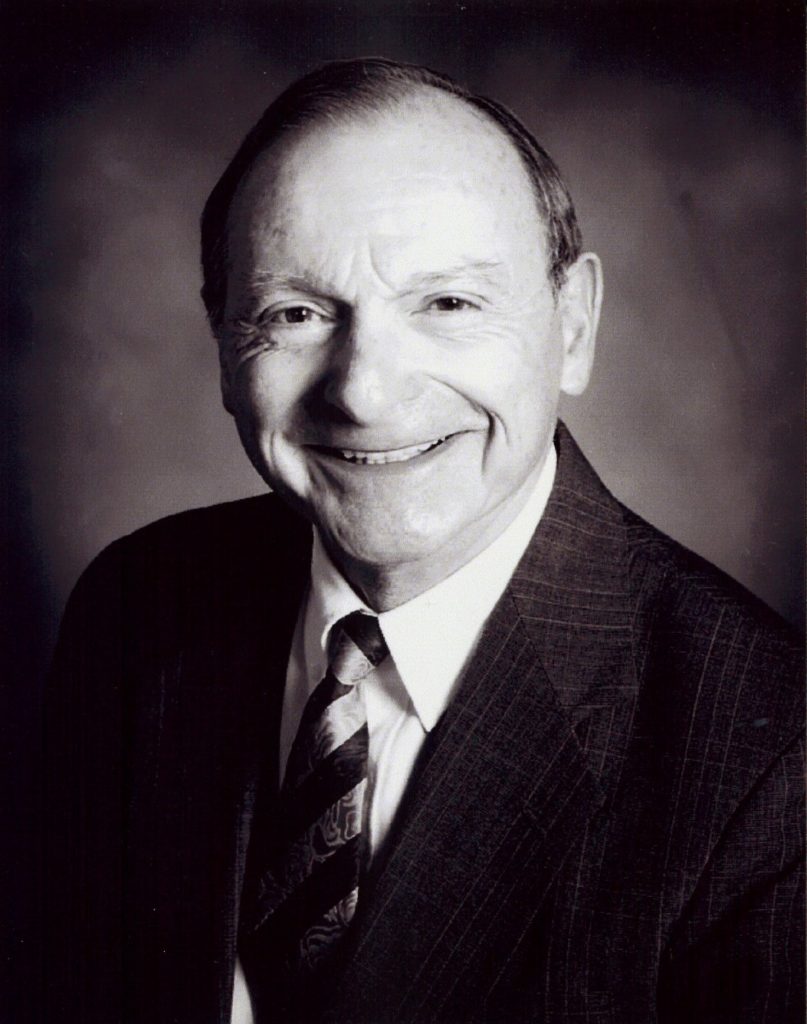
James E. Coleman Jr. (1923-2020)
No lawyer in Texas history trained and mentored more great trial attorneys or had a bigger impact on the legal profession than Jim Coleman.
Coleman was a combat soldier in Patton’s Third Army, earned the Silver Star, worked as an agent for the CIA, founded and built one of the most respected corporate law firms in Texas, hired women as lawyers when other firms refused and successfully handled hundreds of jury trials during his six decade career, including a pair of billion-dollar lawsuits.
Corporate giants Ford Motor Company, General Motors, Uniroyal, John Deere and nearly every insurance company and bank in Texas hired Coleman to defend their companies in some of the largest lawsuits in the U.S.
Scores of lawyers called Coleman for help when they were in trouble. He fired clients when he learned they weren’t telling the truth or when they hid evidence from the court or when they refused to work with some of his lawyers just because they were women. Judges openly admit that legal briefs with his name on them had greater influence. Just about every award ever presented for professionalism, integrity, community service and justice are hanging on his office wall.
Simply put, Jim Coleman was almost certainly the most respected lawyer to ever practice law in Texas.
Coleman, who was 96 and practiced law for nearly seven decades, died Saturday.
“Jim was the poster-child for professionalism and ethics in the legal profession,” Judge Patrick Higginbotham of the U.S. Court of Appeals for the Fifth Circuit told The Texas Lawbook in an interview Saturday. “I can’t tell you what all the characteristics are of a great lawyer, but I can point to Jim Coleman and say with absolute confidence that he had all of them.”
“The law lost a giant today,” Judge Higginbotham said.
U.S. District Court Chief Judge Barbara Lynn, who worked for Coleman for 23 years, said Saturday that Coleman “leaves an incredible imprint on the legal profession.”
“Most great lawyers were influenced by Jim directly or indirectly,” Judge Lynn said. “Jim practiced law at the highest levels of ethics and integrity, and he was extremely successful.
“I can’t tell you what all the characteristics are of a great lawyer, but I can point to Jim Coleman and say with absolute confidence that he had all of them.” —U.S. Fifth Circuit Judge Patrick Higginbotham
“If you had Jim Coleman as a lawyer, you were a very lucky client,” she said.
Margaret Keliher, Coleman’s daughter and a former Dallas County District Court judge, said her father died Saturday morning after battling an infection.
“Dad loved practicing law,” Keliher told The Texas Lawbook. “Being a lawyer wasn’t a job to my dad. It was a calling.”
As managing partner and co-founder of Dallas-based Carrington, Coleman, Sloman & Blumenthal, Coleman mentored some of the best trial lawyers in Texas, including Judge Lynn, Gibson Dunn partner Bill Dawson, Winston & Strawn partner Mark Werbner, Bradley Arant partner Dick Sayles, Baker Botts partner Rod Phelan and Vinson & Elkins partner George Kryder.
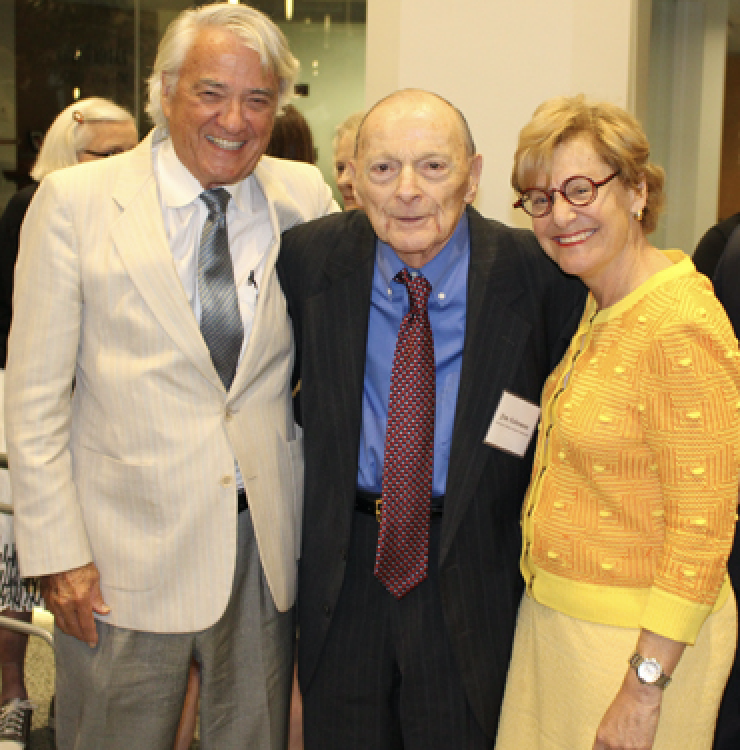
Jim Coleman (Center) flanked by U.S. Fifth Circuit Judge Patrick Higginbotham and U.S. District Judge Barbara Lynn
Numerous corporate general counsel, including North Texas Tollway Authority General Counsel Dena Stroh, Avanos Medical General Counsel John Wesley, Fannie Mae Deputy General Counsel Todd Barton and Sedona Conference executive director Craig Weinlein, came up under Coleman’s guiding hand.
“Jim was a tremendously great human being and he believed with every fiber of his being that it was absolute honor to practice law,” Carrington Coleman managing partner-elect Monica Latin told The Texas Lawbook in an interview Saturday.
“Jim had this way, without even saying a word, this way of convincing us to be better lawyers and to rise to the occasion,” Latin said. “There was no one who was unimportant to Jim. He respected everyone, no matter their position.”
Coleman’s death Saturday came as the law firm he founded is celebrating its 50th anniversary. In addition, the State Bar of Texas’ Litigation Section is scheduled to honor Coleman at a ceremony this Tuesday.
“Jim lived an amazing, fulfilling and rewarding life,” says Carrington Coleman managing partner Bruce Collins. “He had a devotion to clients and the legal profession that was second to none. Jim was my hero and the hero of everyone at our firm.”
James E. Coleman Jr. was born May 23, 1923.
He was in the first grade in Atlanta when the stock market crashed. His father, who was a real estate agent, refused to file for bankruptcy protection and instead used his entire personal savings to pay his debts.
“People were jumping out of windows on Wall Street,” Coleman told The Texas Lawbook in an interview in 2013. “My dad did the right thing and we lost everything.”
The family lived in a small house that sometimes went without electricity because they couldn’t afford it.
One day in 1930, the family car started sputtering as his mother drove it into the garage. The car didn’t move for several years because they didn’t have the money to get it fixed.
“I had two mothers – my white mother and my black mother, Bell Jones, who helped raise me and I loved her very much,” Coleman said. “When I was 11, I had typhoid fever and Bell Jones never left my side the entire summer. She even slept in my room.”
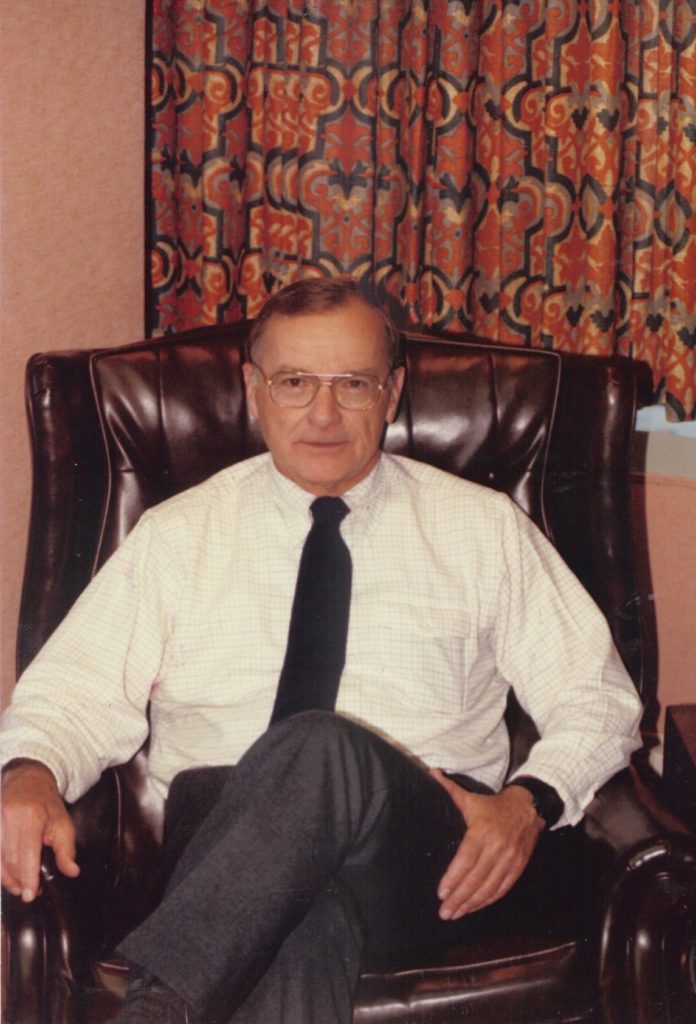
That same year, a neighborhood friend used the N-word when talking about his second mom. Coleman immediately cold-cocked the kid, drawing complaints from the friend’s parents.
“My mother and father let me know they were proud of me,” Coleman said. “I don’t think they would have minded if I had clubbed him again.”
When World War II began, Coleman’s mother went to work for Sinclair Oil because she wanted to do her patriotic duty.
“She quit the day the war ended, even though Sinclair offered to double her salary if she stayed,” he said. “She loved being a mom and wife.”
At age 17, Coleman started thinking about his future. He considered being a doctor, a minister or a lawyer. But he read an article in Good Housekeeping that most parishioners were dissatisfied with their reverend.
“So, I marked being a minister off the list,” he said.
Coleman enrolled as a freshman engineering student at Georgia Tech, where he met Margaret Sutherland, whose father, William, was the founding partner of one of Atlanta’s largest and most influential law firms, Sutherland, Asbill & Brennan, which now has offices in Austin and Houston.
College, War, Marriage & the CIA
On Dec. 7, 1941, Coleman was exiting a movie theater when he heard a newspaper boy for the Atlanta Constitution on the street corner scream out, “Extra, Extra. Japan Attacks Pearl Harbor.”
A few weeks later, Coleman enlisted in the Army, where he served as a platoon leader and second lieutenant and marched through Europe with Patton’s Third Army. Coleman said he was involved in “heavy combat.” He captured scores of German soldiers and later received the Silver Star.
At the end of the war, he was transferred to Camp Swift in Bastrop, Texas, where he served until he was released from duty in 1946. It was his first brush with Texas and he loved it.
With the G.I. Bill paying the way, Coleman went back to Georgia Tech to finish college and get married, as he and Margaret had gotten serious.
Ms. Coleman died in 2012. The couple had been together for more than 65 years.
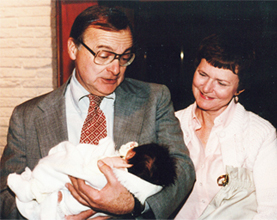
“Margaret was the love of my life and I miss her very much,” Coleman told The Texas Lawbook in 2013.
Coleman faced an early integrity test when his chemistry classmates at Georgia Tech approached him the night before the final exam. They had obtained a copy of the test and answers and invited him to review it with them. Coleman declined and spent the night studying instead.
“The next morning, I sat in class as the test was being handed out and then I heard a gasp from my classmates,” he said. “The teacher had learned that some students had gotten the exam and he had completely changed it.”
Coleman went to law school at the University of Virginia. He was on his way to a football game in 1951 when he stopped by the post office to check the mail. Inside, the U.S. Army ordered Coleman to report to Fort Meade in Maryland to prepare to deploy to Korea immediately. Following a basic physical, the military gave Coleman a street address in Washington, D.C. to report for his next assignment.
“The taxi driver pulled up to a building that has a sign saying the U.S. Government Printing Office,” Coleman said. “I started arguing with the taxi driver that this couldn’t be the building, but he insisted it was the right address.
“I went inside and learned that it was really the Central Intelligence Agency,” he said.
From May 1951 to July 1953, Coleman worked for the CIA. He refused to discuss his work for the spy agency.
“I wasn’t doing desk work, I can tell you that,” Coleman told me over lunch at the City Club on the 69th floor of the Bank of America tower in downtown Dallas. “Even my wife never knew what I did.”
When the Korean conflict ended, Coleman moved to Texas where he joined Carrington, Gowan, Johnson & Walker as a lawyer in the firm’s real estate contracts practice. His salary: $200 a month.
Coleman said he took every opportunity to be in the courtroom, even volunteering to take over cases from his colleagues. He estimated that he tried more than 100 cases during his first three years of practicing law.
“These were not big dollar cases, but they were very important to the clients,” he said.
One of Coleman’s early friends at the law firm was another young lawyer named Jack Hauer, who would later become a named partner at Akin Gump Strauss Hauer & Feld.
“Jack and I loved doing trial work, so we would go around the office every Friday asking everyone if they had a case going to trial on Monday that we could handle for them,” Coleman said. “Then, Jack and I would decide which one of us would examine the lying insurance agent and which one would tackle the lying doctor.”
Hauer and Coleman hung out at the courthouse just looking for opportunities.
One day in 1954, they wandered into the Justice of the Peace Court in Oak Cliff, waiting for their client’s case to be called. The judge in that court described himself as “the Law West of the Trinity.”
“Jim is the model of what every lawyer should be. He is the best lawyer I have ever known or will ever know.” — U.S. District Judge Barbara Lynn
The first case on the docket that day featured a lawyer who was suing a day laborer who couldn’t afford to hire a lawyer over an unavoidable car accident. The lawyer/ plaintiff sought $200 in damages – money the guy didn’t have.
“Even though the evidence and the law was on the non-lawyer’s side, the lawyer was clearly winning,” Coleman said. “Jack and I leaned forward and asked the guy if he wanted two really good lawyers to defend him for free. The man quickly agreed.
“I stood up and said, ‘Judge, Jack Hauer and I have just been retained to represent this defendant in this matter,’” Coleman said. “We won the case for our client in 20 minutes. The lawyer on the other side was not happy.”
Judge Higginbotham was a young lawyer in Dallas and actually had a case against Coleman in 1969.
Coleman was presenting an argument to the judge in a business dispute when Higginbotham jumped to his feet.
“I object, your honor,” Higginbotham said, arguing that Coleman’s position was not supported by the law.
The trial judge turned to Coleman: “What should I do, Jim?”
“Overrule it, judge,” Coleman responded.
“Overruled!” the judge declared.
“It was clear to me and every other lawyer who was ever in court with Jim Coleman that Jim Coleman was the best and smartest lawyer in the courtroom, and the judges all knew it, too,” Higginbotham said.
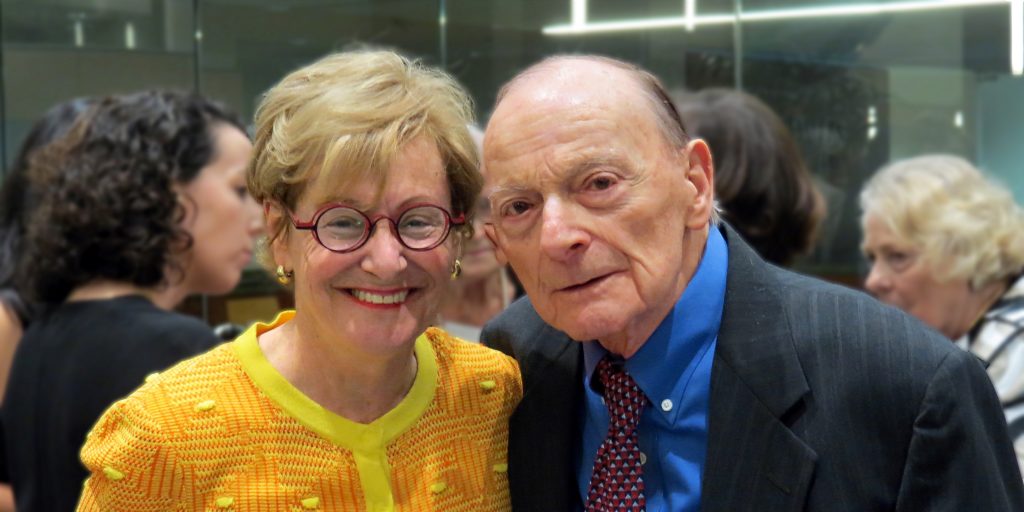
Judge Higginbotham said the American Inns of Court created an award in 1997 to honor professionalism.
“We knew our first selection needed to set the standard for all future selections and be someone who was the ideal role model of what a lawyer should be,” Judge Higginbotham said. “There was one obvious choice: Jim Coleman.”
In 1971, Coleman handled his first bet-the-company trial when he represented Coastal States Gas Company, which had been founded by Oscar Wyatt.
The energy company sold gas to cities such as San Antonio, Austin and Corpus Christi for about a dime a gallon. When OPEC cut production and raised prices by 70%, Wyatt convinced the Texas Railroad Commission to allow Coastal to raise its rates.
San Antonio refused to pay and instead sued Coastal. Coastal countersued. Several billion dollars in damages were at stake.
“We were getting killed in the press, saying this was the worst issue to ever hit San Antonio – worse than the Alamo,” Coleman said. “The judge down there treated us like a country dog come to town.”
Coleman essentially moved to San Antonio, staying in a hotel room on the river for more than a year. A key moment during the trial came when the plaintiff’s star witness, the mayor of San Antonio, took the witness stand to testify against Coastal. Under a blistering cross-examination by Coleman, the mayor became confused, provided testimony that conflicted with his own earlier statements, refused to answer some questions and clearly demonstrated a lack of knowledge of the facts.
“Judge, he’s not answering my question. He’s not responsive. He’s believing in the tooth fairy,” Coleman repeatedly told the judge. “We had to prove that they had no cause of action in Bexar County because we were doing business there. We slowly started seeing the judge move to our side.”
Lawyers for both sides noticed that the judge was changing his position in favor of Coastal States, leading San Antonio officials to agree to settle the case on terms very favorable to Coastal States.
“Back then, it never took a year or two for a case to go to trial because the judges would push us to trial,” Coleman said. “There were several times when I picked a jury in one case while I had a jury in another case down the hall deliberating their verdict. I waived a jury trial twice in my life and both times it was a mistake.
“I got to where I was more comfortable at the courthouse than I was in the office,” he said.
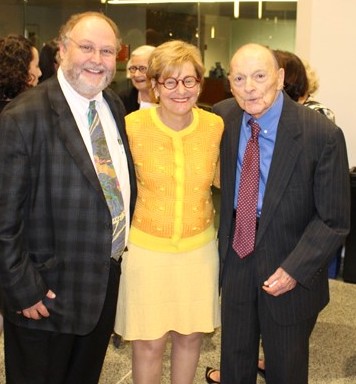
Mark Curriden, Judge Barbara Lynn, Jim Coleman
Judge Lynn, who Coleman hired right out of SMU Law School in 1976 and eventually made the firm’s first woman partner in 1983, said lawyers gained instant credibility with judges if you told them you worked for Coleman.
In 1976, Lynn joined a lawsuit brought by the SMU Association of Women Law Students against a handful of Dallas law firms claiming the firms discriminated against them in their summer hiring programs because of their gender. The lawsuit was viewed as sensitive and highly political at the time, with many lawyers declining to take a stand. Lynn was one of the early witnesses in the case for the plaintiffs.
“I heard she would be testifying, so I went by her office and asked if she would like me to go with her to court,” Coleman said.
Lynn quickly said yes.
“Jim walked into court with me that day and walked me around the courtroom introducing me to every lawyer there, basically forcing them to shake hands with me,” Lynn recalled. “Jim sat on the front row and when I was done, he stood up, put his arm around me and walked out with me.”
“I took Barb that morning to meet the judge and I introduced her to the opposing counsel and right in front of him, I said, ‘Bob will treat you with great respect and dignity or I will tell his wife,’” Coleman said.
Judge Lynn said Coleman’s support never wavered and he always made decisions based on doing the right thing.
“We had a client who said he didn’t want women working on his case,” Judge Lynn said. “Jim looked at the client and said, ‘Then we don’t want your business.’”
Another time, Judge Lynn, who was at the time a young associate handling a matter for a major firm client, discovered the client was withholding documents despite a court order to produce them.
“I told the client that I would not represent him if he continued to hide the documents,” she said. “The client demanded to speak with Jim, but Jim completely supported me and my position. He was willing to lose the client rather than compromise his integrity. That is Jim Coleman.”
No Mandatory Retirement or I’m Leaving
In 1986, Coleman was facing his 65th birthday. He kept seeing many of his long-time lawyer friends across Texas being forced to leave their law firms because of mandatory retirement policies.
As his firm’s managing partner, Coleman called a meeting of the partnership to discuss mandatory retirement.
“I want one of two things: an agreement that we have no such policy or to be grandfathered in and to be exempt from it,” Coleman told the lawyers. “If those things don’t happen, I’m leaving to join another law firm.”
Partner John Martin immediately made a motion that Carrington Coleman should never have any kind of mandatory retirement policy. It passed unanimously.
“Carrington Coleman would have been a firm of fools if they had forced Jim to retire,” Judge Lynn, who was a partner at the time, said in an interview in 2013. “Every lawyer in the firm knew that Jim Coleman was the most valuable person there.”
“Jim is the model of what every lawyer should be,” she said. “He is the best lawyer I have ever known or will ever know.”
